The amazing story of how the adventurous Kolb brothers helped inspire the creation of Grand Canyon National Park.

Long before Grand Canyon was a national park, it attracted some colorful characters. Men dug for ore and built trails and camps. Later they guided tourists and were noted for their storytelling prowess.
And then there were the knuckleheads.
That’s the word I used to describe groundbreaking photographers, Ellsworth and Emery Kolb, in my book The Amazing Kolb Brothers of Grand Canyon. I thought it best summed up their full-tilt, damn the torpedoes, you-think-that-was-crazy-here-hold-my-beer lifestyle. But my publisher thought it could be misconstrued by their family and asked me to remove it. No problem. I still call them knuckleheads at talks and book signings, and in my blog posts. Emery’s great-grandson gets a big kick out if it.
The point is the Kolbs went way beyond colorful. They were the real deal, genuine explorers who probed every corner of Grand Canyon, on foot, in the saddle, by boat and even from the air. In 1922, when aviation experts declared it impossible to land a plane in the abyss because of treacherous updrafts, Ellsworth hired a stunt pilot, climbed aboard as cameraman, and proved them wrong when they set down in the inner canyon at Plateau Point.
Yet it was the Kolbs’ astonishing journey down the Green and Colorado rivers in 1911- ’12 that made them famous. John Wesley Powell first rafted those unknown waters in 1869. In the ensuing four decades only a handful of men had succeeded, and plenty had perished in the attempt. With virtually no boating experience, the Kolb brothers spent nearly four months in deep river canyons, traveling 1,100 miles, navigating 365 large rapids and numerous smaller ones. They became just the 26th and 27th men to accomplish the feat. Ellsworth would go on the next year to complete the journey, following the Colorado River all the way to the sea, just the fourth expedition to do so.
Diese Geschichte stammt aus der May 2019-Ausgabe von True West.
Starten Sie Ihre 7-tägige kostenlose Testversion von Magzter GOLD, um auf Tausende kuratierte Premium-Storys sowie über 8.000 Zeitschriften und Zeitungen zuzugreifen.
Bereits Abonnent ? Anmelden
Diese Geschichte stammt aus der May 2019-Ausgabe von True West.
Starten Sie Ihre 7-tägige kostenlose Testversion von Magzter GOLD, um auf Tausende kuratierte Premium-Storys sowie über 8.000 Zeitschriften und Zeitungen zuzugreifen.
Bereits Abonnent? Anmelden
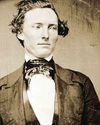
FIREARMS COLT WALKER 47
THE LEGENDARY HANDGUN THAT REALLY WON THE WEST
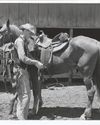
HERITAGE TRAVE
THE AMERICAN WEST IN ALL ITS GLORY OUR ANNUAL FAVORITES LIST CELEBRATES DESTINATIONS ACROSS THE WESTERN UNITED STATES.
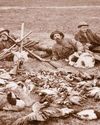
Wild Turkey, and Not the Drinkin' Kind
The actual bird was a favorite of pioneers.
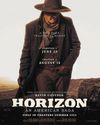
THE PASSION PROJECTS OF THE MODERN WESTERN
A YEAR OF UNDERRATED EXCELLENCE
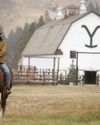
WESTERN BOOKS THEN AND NOW
THE STATE OF WESTERN HISTORY AND FICTION PUBLISHING IN 2024 IS ONE OF GRIT AND DETERMINATION.
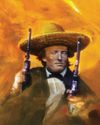
SAMUEL WALKER VALIANT WARRIOR
While a prisoner at the castle of Perote, Walker was put to work raising a flagpole. At the bottom of the hole, Walker placed a Yankee dime, vowing to someday come back and retrieve it, at the same time exacting revenge on his Mexican captors. In the summer of 1847, when Walker's mounted riflemen returned and routed Santa Anna's guerillas, the young captain kept his promise and got his dime back.
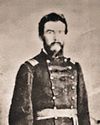
THE BATTLE OF CENTRALIA
ON September 27, 1864, Bloody Bill Anderson and about 80 men took over the small railroad village of Centralia, looting stores and discovering a barrel of whiskey that they hauled out into the street. Wild enough when sober, they soon were roaring drunk.
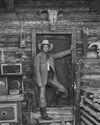
THE MAN WHO SHOOTS THE WEST
Jay Dusard is a living American photographer who has made Arizona his home for over 60 years, seeing it first in 1960 on a visit, moving here for good in 1963.
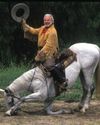
A TRUE WESTERNER INDEED PHIL SPANGENBERGER 1940-2024
Spangenberger had Nevada trained to bow by the legendary horse trainer, Glenn Randall, who trained Roy Rogers' Trigger, Gene Autry's Champion, Rex Allen's Koko and the Ben Hur chariot horses, among other great equines.

Where Did the Loot Go? - This is one of those find the money stories. And it's one that has attracted treasure hunters for more than 150 years.
Whatever happened to the $97,000 from the Reno Gang's last heist? Up to a dozen members of the Reno Gang stopped a Jeffersonville, Madison and Indianapolis train at a watering station in southern Indiana. The outlaws had prior intelligence about its main load: express car safes held about $97,000 in government bonds and notes. In the process of the job, one of the crew was killed and two others hurt. The gang made a clean getaway with the loot.